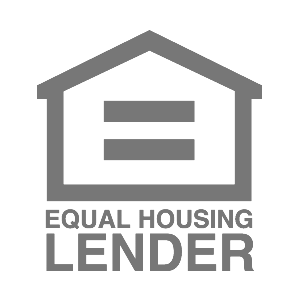
Home equity is the difference between what the home is worth and how much you still owe the mortgage lenders, according to Freddie Mac.
For example, if your house is worth $250,000, but you owe $50,000, then you have $200,000 in equity. As you make your monthly payments, a portion of your payment will go toward growing your principal balance. If the value of your home stays stable, your equity will grow each month.
If you run into a big expense, tapping into your home’s equity might be the financial solution you need.
In This Article
How to use home equity
Many lenders offer financing solutions using your equity as collateral to secure the loan. The result is that home equity financing creates a second mortgage payment. If you can’t keep up with your second mortgage payments, the lender might seize your home as collateral.
Unfortunately, this means borrowing against your equity comes with the risk of losing your house. But the silver lining is that collateral makes home equity-based loans less risky for lenders, which often leads to lower interest rates than unsecured loans.
Home equity lines of credit (HELOC) and home equity loans (HELoans) are two popular ways to tap into your home equity. Let’s take a closer look at both.
HELOC
A HELOC is a revolving line of credit. It works similarly to a credit card, only with your home as collateral. The lender approves a maximum credit limit, but you can use however much of it you’d like at any time, giving you enormous flexibility.
As you pay down the balance, it becomes available to borrow again. It’s important to note that the amount you will be permitted to borrow will be based on several different factors, including, but limited to:
- Accumulated home equity
- Current income
- Credit score
There is a draw period when you can access your HELOC to borrow money, generally 5-10 years. After that, you enter the repayment period, during which you make payments on the remaining balance. HELOCs generally have a variable interest rate.
HELoan
Like a HELOC, a HELoan allows you to borrow against the value of your home. However, in a HELoan, you borrow a one-time, lump sum amount, usually at a fixed interest rate.
You then make fixed payments for the duration of the agreed repayment term. You should make sure you’re able to make the monthly loan payment before proceeding with a HELoan.
Read more: HELoan: Pros and Cons
What to do with your home equity
When you use your home equity, you have the freedom to spend in various ways. But here are a few popular ways to use your home equity.
Debt consolidation
Debt consolidation involves taking out a loan large enough to cover all your other debts. You can use the home equity funds to pay off these debts and roll the burden into a single monthly payment.
Since a home equity financing solution often comes with lower interest rates, you can save money on interest while simplifying your financial situation. Depending on your debt situation, consolidation through your home equity might even lead to a smaller monthly payment.
Home improvements
As all homeowners know, houses come with an often-never-ending list of projects. If you have major renovation or remodeling projects on your list, your home equity might provide the financing you need.
Many remodeling projects increase the value of your home. With that, undertaking the right projects might increase your equity.
When mapping out a home renovation project, the flexibility of a HELOC is often preferred. Since the cost of a home improvement project can fluctuate, having access to a line of credit can go a long way.
College and educational expenses
The cost of a good education isn’t always affordable. If you want to help your kids pay for college or private school, your home equity might be the right solution.
If considering this choice, take a serious look at your financial situation. Make sure that you can afford to hit your other financial goals, like retirement, before committing to the decision.
Medical bills
Even if you have health insurance, an unexpected illness or injury could result in a costly bill. Unfortunately, medical bills are one of the leading causes of bankruptcy in the U.S.
If you get stuck with a hefty medical bill, it’s tempting to use your home equity to cover the cost. But the right move depends on your situation. Typically, using your home equity is a good idea if you can lock in a lower interest rate than your other payment options.
For example, if your only other payment method is a credit card, then a home equity-based financing solution might be a better solution.
Also, consider negotiating your hospital bills for a better cost before paying the bill.
Dream vacation
While it’s ideal to pay for a dream vacation in cash, a home equity-based loan might offer the lowest interest rates to fund your adventure. If your dream vacation destination is calling your name, using your home equity might be the most affordable way to make your dreams come true.
Weddings and honeymoons
Whether it’s your wedding or your child tying the knot, you could use your home’s equity to pay for a wedding.
Of course, having a sensible party that doesn’t break the bank is likely a sound financial plan, but using the equity you’ve built in your house could be one way to pay for wedding expenses or a memorable honeymoon.
Ready to use your home equity
Understanding how to use home equity can help you tackle a wide range of financial goals and major life expenses. However, before you proceed, calculate which home equity option will work best for you and your overall financial well-being.
Written by Sarah Sharkey | Edited by Rose Wheeler
Sarah Sharkey is a personal finance writer who enjoys diving into the details to help readers make savvy financial decisions. She lives in Florida with her husband and dogs. When she’s not writing, she’s outside exploring the coast. You can connect with her on her blog Adventurous Adulting.
Eligibility for a home equity loan or HELOC up to the maximum amount shown depends on the information provided in the home equity application. Depending on the lender, loans above $250,000 may require an in-home appraisal and title insurance. Depending on the lender, HELOC borrowers must take an initial draw of the greater of $50,000 or 50% of the total line amount at closing, except in Texas, where the minimum initial draw at closing is $60,000; subsequent HELOC draws are prohibited during the first 90 days following closing; after the first 90 days following closing, subsequent HELOC draws must be $1,000, or more, except in Texas, where the minimum subsequent draw amount is $4,000.
The amount of time it takes to get funds varies. It is measured from the time the lender receives all documents requested from the applicant and depends on the time it takes to verify information provided in the application. The time period calculation to get funds is based on the first 4 months of 2023 loan fundings, assumes the funds are wired, excludes weekends, and excludes the government-mandated disclosure waiting period.
For Texas home equity products through Prosper, funds cannot be used to pay (in part or in full) non-homestead debt at account opening.
Depending on the lender, qualified home equity applicants may borrow up to 80% – 95% of their primary home’s value and up to 80% – 90% of the value of a second home. In Texas, qualified applicants may borrow up to 80% of their home’s value. HELoan applicants may borrow up to 85% of the value of an investment property (not available for HELOCs).
Home equity products through Prosper may not be available in all states.
All home equity products are underwritten and issued by Prosper’s Lending Partners. Please see your agreement for details.
Prosper Marketplace, Inc. NMLS# 111473
Licensing & Disclosures | NMLS Consumer Access

